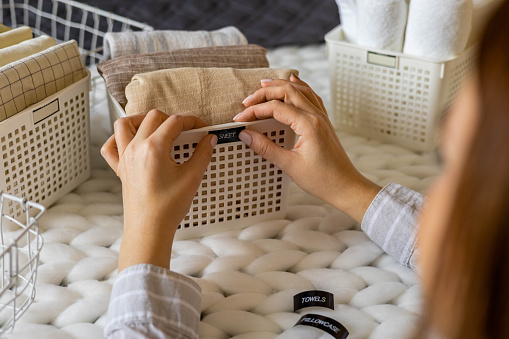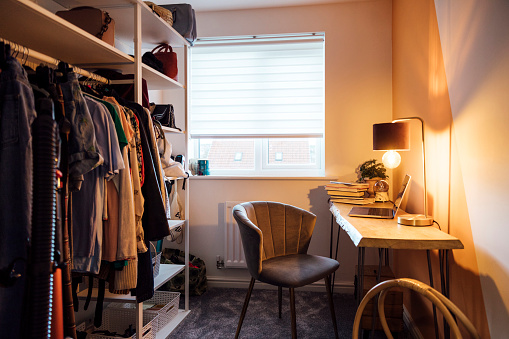At least once in our lives, we find ourselves lacking in space, which always leads to a decrease in sanity. Our brains don’t function as well when we’re disorganised or when we see large areas of disorganisation.
So, what can you do when you’re not working with a lot? Organising small spaces isn’t impossible, you just have to get creative. Sometimes, you can also seek help from a cleaning company in Melbourne to help you in organising small spaces at home.
Learn these top tips for organising small spaces to corral the chaos below.
Take Advantage of Random Space
Do you know the saying, “leave no stone left unturned”? Well if you’re living in a small space, leave no space unused.
So many times people look over usable storage space because it’s not what they think of as “usable”. But a quick weekend project or two and you’ve now got shelves above your bathroom door.
Other great places to store things are up above cabinets and in the top of closets. Can you install a row of wire shelving on top of your clothes rack?
Go out and buy some rolling drawers and stack them so they fit on your closet shelving. Now you have divided storage where you used to stack shoe boxes.
Get Rid of Boxes
On that note, no one should keep shoe or product boxes around the house. When you buy new shoes or a new appliance, break down the box and lay it out flat.
Take pictures of the information on the box, like usage directions or unit model #s. Then, send the box out to the recycling and throw the photos in an online drive.
Better yet, use that box and throw a few things in it to donate or give away. If your space is really small, it’s smart to always take one old thing out when you bring something new in.
Buy A Label Maker
You’d be surprised how much difference a label maker and some bins from the dollar store can make.
You may think it’s unnecessary, but with the machine in hand, the organisational bug will take you over. You’ll find yourself thinking “what else can I label”.
And it actually helps you organise in the long run too. A lot of mess happens when there isn’t a prescribed place for a certain thing. When you have a bin labelled “school stuff” and a bin labelled “extra cords”, you’ll find your junk drawer overflows less.
Help Little Hands
Children’s toys are one of the hardest things to organise. Why? Kids have a hard time remembering which things go where. Do balls and blocks go in the same bin or different ones?
If you kids are anything like ours, they just throw them wherever they can to get them off the floor and get done cleaning faster.
There’s an easy trick that we’ve had success with. You know those small Polaroid-type cameras that are popular right now? If you don’t already have one, ask a friend if you can borrow one.
Then lay out a bunch of toys that go in the same box together. Make sure the lighting is bright and snap a picture. Then, tape the polaroids onto each bin.
Now your child not only plays the matching game when it’s time to put things away, but they have no excuses about not knowing where something goes.
Use Vertical Space
Have you heard of floating shelves? What about the superman bookshelf that’s been floating around on Pinterest?
If you haven’t seen it, it’s a metal cut out of Superman with one arm holding up a load of books. The trick behind it is that the books hide the shelf and stack upwards.
You can install these vertical invisible shelves anywhere on your walls, which clears up bookshelf and desk space for other things. Try stacking books in colour order or invest in a book tower.
Book towers are the same idea, but they’re taller and can stand alone. What’s more perfect to put in an unused corner than all the books in your house?
It keeps them in one spot, they don’t tip over, and you can organise them by colour for a rainbow effect.
Repurpose Spaces
Do you have a large linen closet or an unused closet in the guest room? Repurpose it into a small office. Most closets are deep enough to fit a desk, though you may have trouble finding something the right width.
Don’t be afraid to look at used stores and buy second hand, you can shop more unique sizes that way. Use the shelving in the closet for office supplies then simply close the closet doors when you’re done.
Now you have a hideaway space that gives you privacy and opens up a spot in your living room.
Kick Out The Boogey Man
If you’re not using the space under yours or your kid’s beds for storage, get to it! Under-the-bed-bins are long, flat, and stack on top of each other.
We’ve used them to hold linens when we didn’t have a linen closet, old shoes, and craft supplies.
As a bonus, the plastic bin keeps dust and creepy crawlies away from whatever you store in the bins. Throw in a satchel of lavender and you’ll never have musty sheets again!
Repurpose Furniture
You know what makes an awesome TV stand and has much more storage than a traditional one? A dresser with lots of drawers. Or an old desk.
You can cut out the back part of the drawer for easy cord-connecting access. DVD’s or gaming consoles go in one drawer and you can put random goods in the others.
With a dresser you’re using the space you’d be using with a TV stand anyways, but keeping it more organised.
Organising Small Spaces
Finally, what unused space looks like in one home or apartment will look different than it does in another. Maybe you don’t have an extra closet but you could build one of those fold-down wall desks.
Get to know your space and know your mess. Figure out where and what things gather in piles and then set out to organise them. Organising small spaces is a feat within itself – but we’re confident you can do it.
Let us know what you end up doing and share this article with another cramped-living lady for more ideas!


